Does Germany owe Greece wartime reparations money?
- 13 March 2015
- Europe

The Greek government has threatened to seize German property as compensation for World War Two.
But what does Germany owe Greece, if anything, and why?

What are the claims based on?
The Nazi occupation of Greece from 1940-44 was among the most savage - around 250,000 people died, mostly from starvation.
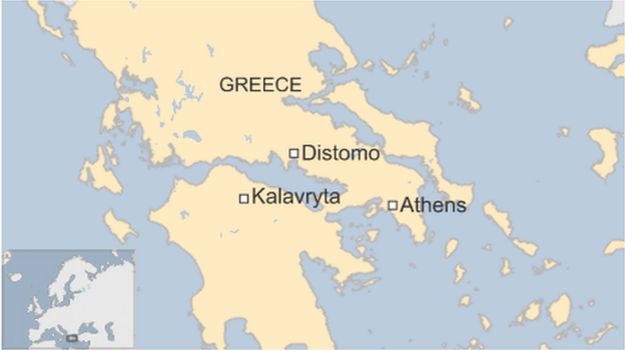
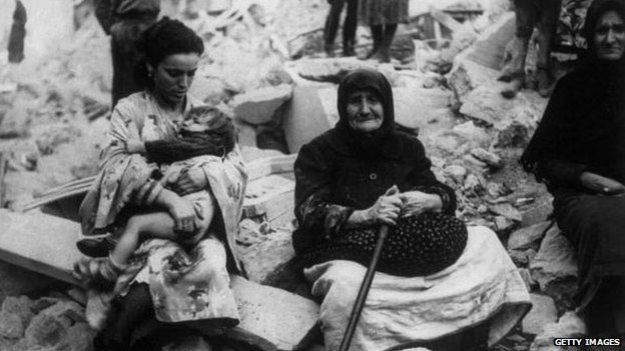
Massacres include the one at Kalavryta where about 500 people were killed. At issue now is compensation for the killing of 218 civilians in Distomo in 1944. In 2000, the Greek Supreme Court ruled Germany should pay €28m (£19.7m; $30m) to the relatives of those killed, although the decision was not enforced, and the dispute effectively reached stalemate in international courts in the following years.
Justice Minister Nikos Paraskevopoulos has said he is ready to approve that ruling.

Why is it an issue now?
Greek Prime Minister Alexis Tsipras told parliament on Tuesday he had a duty to pursue reparations. He set the tone for his presidency early on by laying a wreath at a memorial to a massacre of Greeks by German soldiers in Athens.
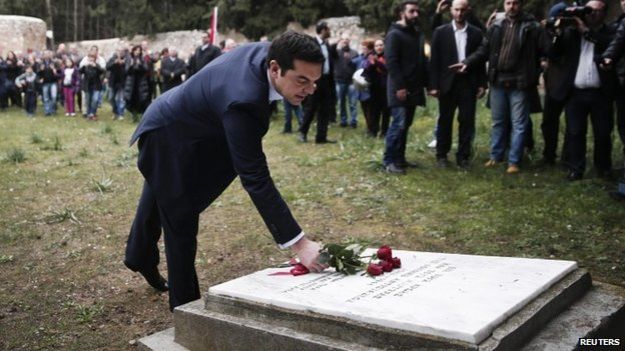
But Greece's wartime enemy is now its major creditor.
Greek relations with Germany have deteriorated in recent years because of the financial crisis, with Germany one of the big contributors to the eurozone bailout that began in 2010.
The new leftist government argues austerity measures should be relaxed, a demand opposed by Germany. It negotiated a four-month extension to its €240bn (£170bn; $255bn) bailout last month after tense talks with creditors.

How much has Germany paid?
Berlin paid 115m Deutschmarks to Athens in 1960 in compensation. It was a fraction of the Greek demand but was made with the agreement there would be no more claims. Greece says the 1960 deal did not cover key demands, including payments for damaged infrastructure, war crimes and the return of a forced loan exacted from occupied Greece.
Germany insists the issue of compensation was settled in 1990 legally and politically before Germany reunified and has questioned why Greece did not negotiate when it entered the eurozone.

How much does Greece still want?
It is classified but based on previous estimations, Athens could be demanding as much as €162bn: €108bn for destroyed infrastructure and €54bn for the forced loan.
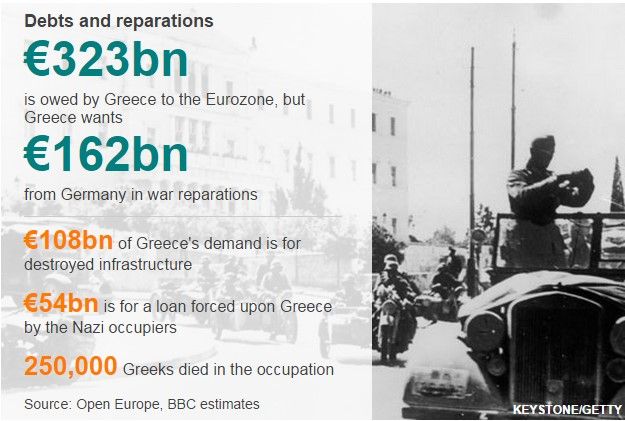

How could the money be reclaimed?
The Supreme Court ruling allowed for German-owned property to be seized as compensation though it was never acted on by then-Justice Minister Michalis Stathopoulos.
Among possible assets are property belonging to Germany's archaeological school and the Goethe Institute, a cultural association.
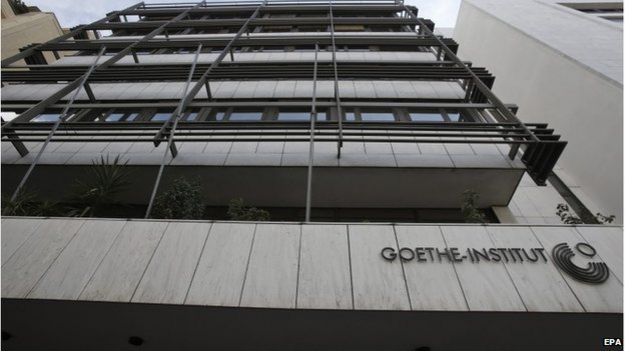

No comments:
Post a Comment